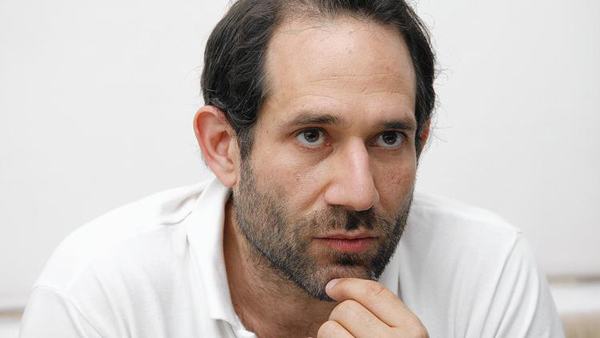
Former CEO and founder of American Apparel, Dov Charney has new strategies towards getting his brand back after being ousted by his board on June 18, 2014.
First, just 2 weeks after getting pushed out, Charney borrowed $20 million from Standard General to move his ownership from 27% to 43%. At the time, Randy Katz, a partner at BakerHostetler in Costa Mesa expressed that, “The momentum is on Dov’s side. He has a better-than-even shot of getting where he wants to be.”
But it’s not going to be easy.
“This is Dov’s revenge,” said Lloyd Greif, chief executive of investment banking firm Greif & Co. “You have a very angry, jilted CEO who is letting the company feel his full wrath. He was basically told they were divorcing him, and he is saying, ‘Au contraire, it ain’t so.'”
Charney unveiled his plan to gain back his company, requesting for a special meeting to consider expanding the board from 7 to 15 members. The board refused the meeting, meaning that Charney now has to get shareholder approval.
Charney’s block of shares could ultimately force the board to hold a meeting with him, but it will probably go to court.

In another article following the story, David E. Rosewater, a partner at Schulte Roth and Zabel who specializes in mergers and acquisitions said, “The board, on its own, suspends its chief executive, who then turns around and manages to acquire or control enough of the vote such that they might be able to come back and throw out the mutineers. That is very, very unusual.”
The board responded to the partnership of Standard General and Charney by issuing a shareholders rights plan, often called a poison pill, which is intended to deter any takeover by preventing groups from building major stakes in a company. In this case, the plan said that if a person or group holding at least 15 percent of shares — like Mr. Charney — increased their stake by even 1 percent, the poison pill would be triggered. That would flood the market with cheap shares, and dilute existing shares, and everybody’s stake along with it.
Another factor to consider is that the American Apparel stock price tanked. At its peak, it was worth $15 a share. Most of this spring, it’s been at $.50 a share. However according to our Youth Culture Studies, American Apparel as a brand remains a favorite among youth culture in North America.
Lion Capital has come in now and asked American Apparel, which employs 10,000 people worldwide, to repay a $10 million loan. The loan is considered in default if Charney is no longer chief executive. American Apparel executives have said the company would be able to pay the loan.
Meanwhile, taking over for Charney is John Luttrell, American Apparel’s executive vice president and chief financial officer, who was named as interim CEO while the company searches for a new chief executive.
According to a press release issued by the company, Charney’s termination will be effective following a 30-day cure period required under the terms of Charney’s employment agreement.
The board also intends to request Charney resign from the board. He is no longer the chairman of the board. That position is now jointly held by board directors Allan Mayer and David Danzinger.
For 2013, the company reported a net loss of $106.3 million on $633.4 million in revenues, compared with a loss of $37.3 million on $617.3 million in revenues in 2012.
The board said in its statement that “Dov Charney created American Apparel, but the company has grown much larger than any one individual, and we are confident that its greatest days are still ahead.”
“We have one of the best known and most relevant brands in the world, with employees who are second to none; I believe we have a very exciting future,” Luttrell said in the release. “Our core business—designing, manufacturing and selling American-made branded apparel—is strong and continues to demonstrate great potential for growth, both in the U.S. and abroad. This new chapter in the American Apparel story will be the most exciting one yet.”
The release said the company will continue to “remain committed to its sweatshop-free, “Made in USA” manufacturing philosophy.”
And then another turn of events last week: Dov Charney handed over his entire stake and voting rights to Standard General LP, in order to enable them to negotiate directly with the independent directors over the company’s future.
Earlier Standard General had loaned its American Apparel shares to Charney, according to regulatory documents, allowing him to boost his stake in the company from about 27 percent to 43 percent. Charney had hoped to gain majority control, but American Apparel countered with an anti-takeover plan that prompted him to change his strategy.
American Apparel has now agreed to negotiate with Standard General, who is known for investing in distressed companies such as RadioShack. American Apparel declined to comment. Standard General officials were not immediately available for comment.
Since Charney founded American Apparel in 1997, American Apparel has grown to 250 retail stores in 20 countries, including the United States, Canada, Mexico, Brazil, the United Kingdom, Ireland, Australia, Belgium, France, Germany, Italy, the Netherlands, Spain, Sweden, Switzerland, Austria, Japan, South Korea and China. The company also operates a wholesale business that supplies T-shirts and other apparel to distributors and screen printers. It has a vibrant e-commerce site, too.


